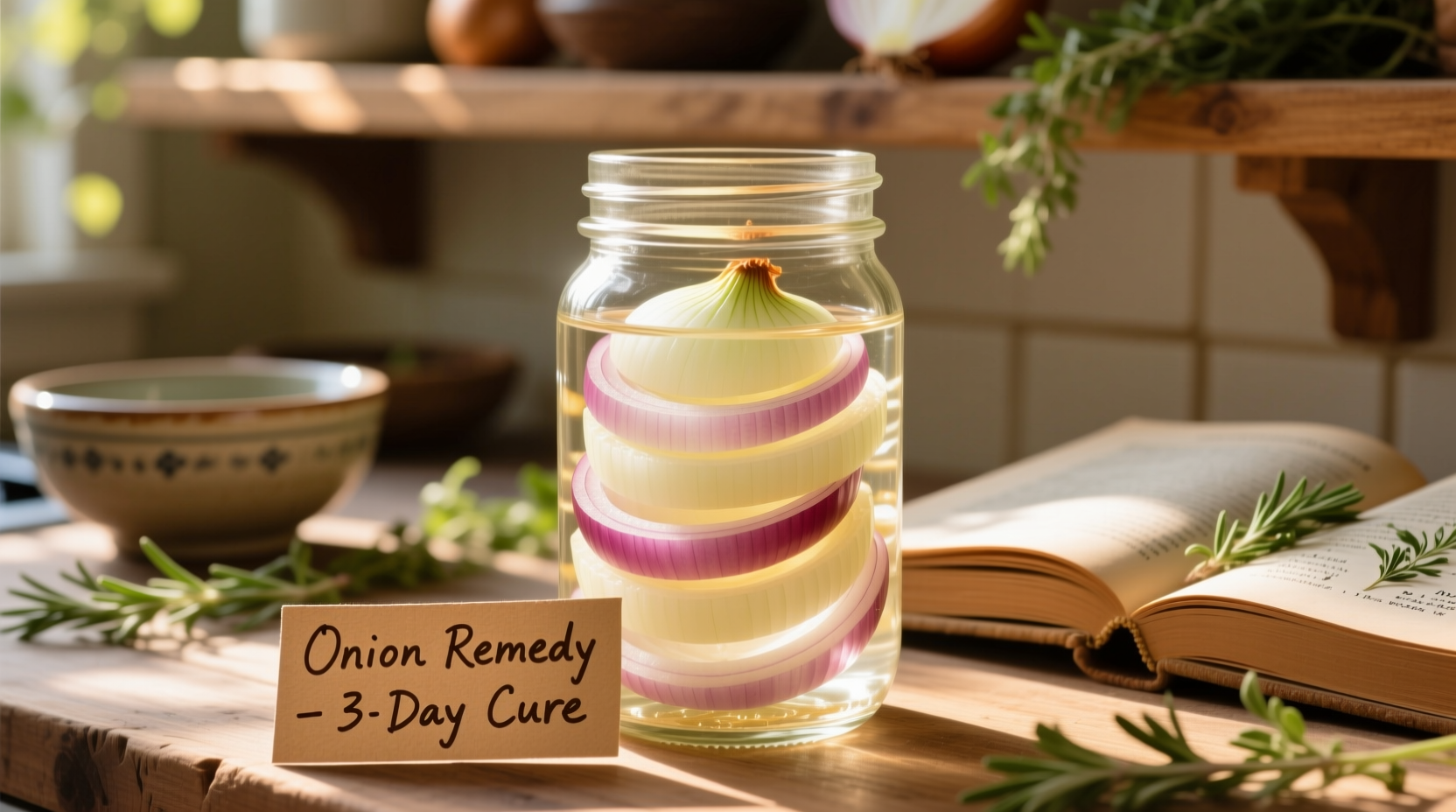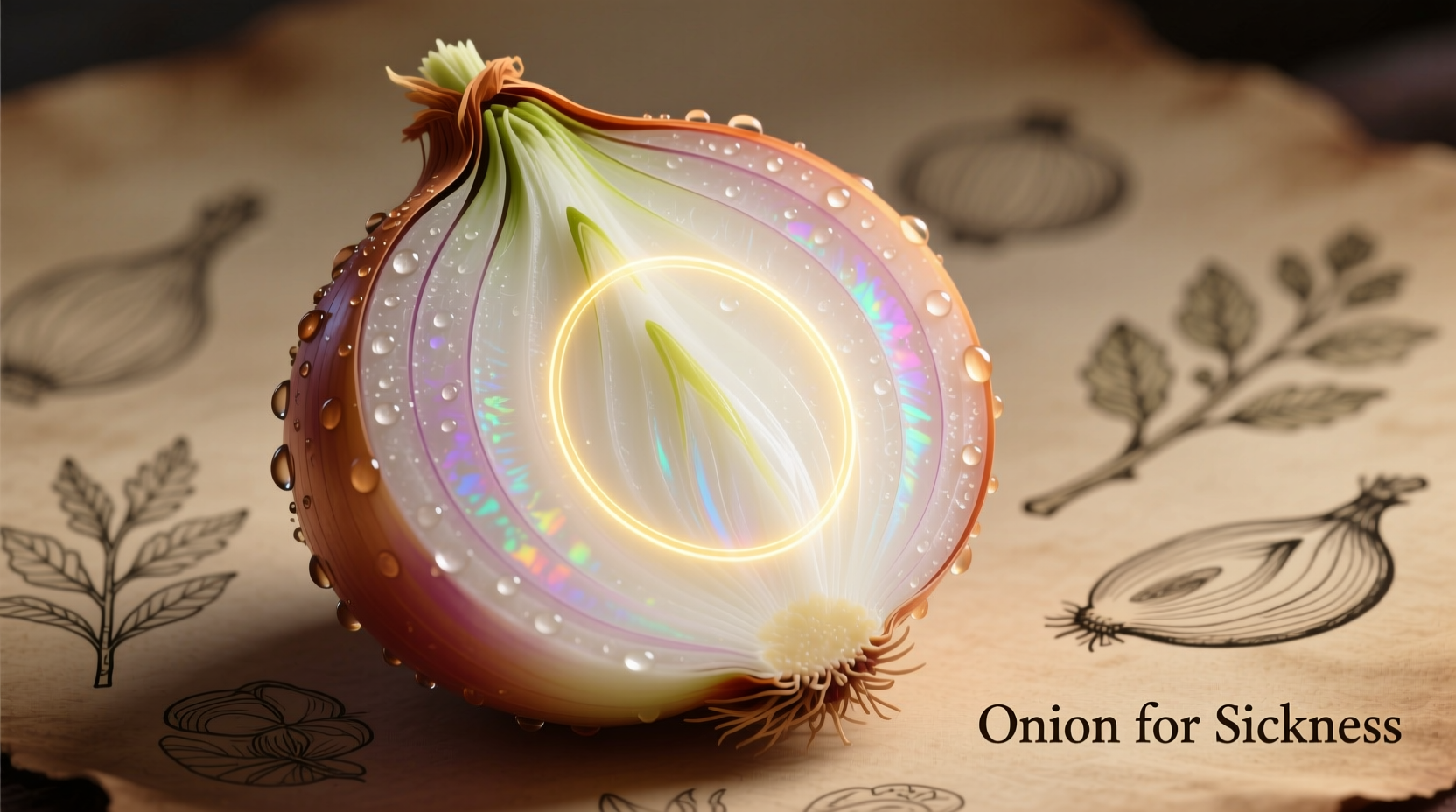Onions contain beneficial compounds like quercetin and allicin that may provide modest relief for minor cold symptoms, but they cannot cure serious illnesses. Scientific evidence supports limited use for soothing coughs and sore throats, while traditional remedies often overstate their effectiveness. Always consult a healthcare provider for persistent or severe symptoms.
What Science Says About Onions and Sickness
For centuries, cultures worldwide have turned to onions as a home remedy for various ailments. Modern research reveals why this humble vegetable has earned its medicinal reputation. Onions contain quercetin, a flavonoid with antioxidant and anti-inflammatory properties that may help reduce respiratory inflammation. They also contain allicin compounds similar to those found in garlic, which demonstrate antimicrobial effects in laboratory studies.
A 2020 review published in Nutrients examined onion compounds' potential benefits for respiratory health. While promising in controlled settings, researchers noted that "the concentration of active compounds achieved through typical home remedy preparations may be insufficient for significant therapeutic effects." This explains why many traditional onion remedies provide only symptomatic relief rather than curing illness.

Traditional Onion Remedies: What Works and What Doesn't
Across different cultures, people have developed creative ways to use onions for sickness relief. Let's examine the most common applications with their actual effectiveness:
| Traditional Remedy | Reported Benefit | Scientific Support | Practical Recommendation |
|---|---|---|---|
| Onion syrup (sliced onions with honey) | Relieves cough | Moderate (honey is primary active ingredient) | May soothe throat irritation; use as temporary relief |
| Raw onion poultice on chest | Reduces congestion | Minimal | Likely placebo effect; no significant harm |
| Onion juice in ear | Treats ear infection | None (potentially harmful) | Avoid; consult doctor for ear infections |
| Raw onion consumption | Boosts immunity | Limited (as part of balanced diet) | Include in meals but don't expect dramatic effects |
Creating Effective Onion Syrup for Cough Relief
While not a cure, onion syrup can provide soothing relief for minor coughs. Here's a science-backed preparation method:
- Cut one medium yellow onion into thin slices
- Place slices in a glass jar and cover with raw honey (not maple syrup)
- Let sit for 4-6 hours until liquid forms
- Strain and store in refrigerator for up to two weeks
- Take 1 teaspoon as needed for cough relief (adults only)
The honey in this preparation provides the primary soothing effect, while onions contribute mild antimicrobial properties. The National Center for Complementary and Integrative Health confirms that honey alone can be as effective as some over-the-counter cough medicines for temporary relief.
When Onion Remedies Won't Help (And What To Do Instead)
Understanding the limitations of home remedies is crucial for your health. Onion treatments have specific boundaries where they become ineffective or potentially dangerous:
- Bacterial infections - Onions cannot replace antibiotics for strep throat or bacterial pneumonia
- High fevers - Persistent fever above 102°F requires medical evaluation
- Ear infections - Putting onion in ears can cause irritation or infection
- Severe dehydration - Illness with inability to keep fluids down needs professional care
The Centers for Disease Control and Prevention emphasizes that "home remedies should complement, not replace, evidence-based medical care." If symptoms persist beyond 7-10 days, worsen suddenly, or include difficulty breathing, seek medical attention immediately.
Integrating Onions Into Your Wellness Routine
For maximum benefit, incorporate onions strategically into your health regimen:
- Use raw onions in salads when healthy to benefit from quercetin's antioxidant properties
- When sick, cook onions to make them easier to digest while preserving some beneficial compounds
- Combine with other supportive measures: rest, hydration, and proper nutrition
- Store cut onions in airtight containers for up to 7 days to maintain potency
Remember that onions work best as part of a comprehensive approach to wellness, not as standalone treatments. The World Health Organization recommends that "traditional remedies should be viewed within the context of overall health practices rather than as miracle cures."
Frequently Asked Questions
Can onions really cure a cold or flu?
No, onions cannot cure viral infections like colds or flu. They may provide modest symptomatic relief for coughs and sore throats due to their anti-inflammatory compounds, but they don't shorten illness duration or eliminate the virus. Rest, hydration, and proper medical care remain essential for recovery.
Is it safe to put raw onions on a child's feet for sickness?
While placing onions on feet won't cause direct harm, this traditional remedy lacks scientific evidence. The American Academy of Pediatrics states there's no proof that foot applications affect internal illness. For children's illnesses, focus on proven treatments like appropriate hydration, rest, and pediatrician-approved medications.
How much onion should I eat when sick?
When ill, aim for moderate consumption - about 1/2 cup of cooked onions daily. Excessive raw onion intake may cause digestive discomfort when your system is already stressed. Cooked onions are generally better tolerated during illness while still providing beneficial compounds.
Can onion syrup replace cough medicine?
Onion syrup with honey can provide temporary cough relief similar to some over-the-counter medicines, but it shouldn't replace prescribed medications for serious conditions. The FDA warns against using honey in children under 1 year, and those with diabetes should monitor honey intake. Always consult your healthcare provider about appropriate treatments.











 浙公网安备
33010002000092号
浙公网安备
33010002000092号 浙B2-20120091-4
浙B2-20120091-4